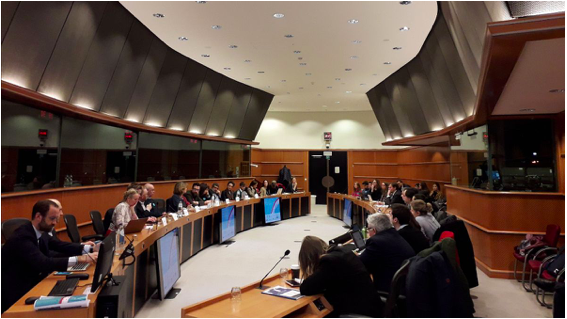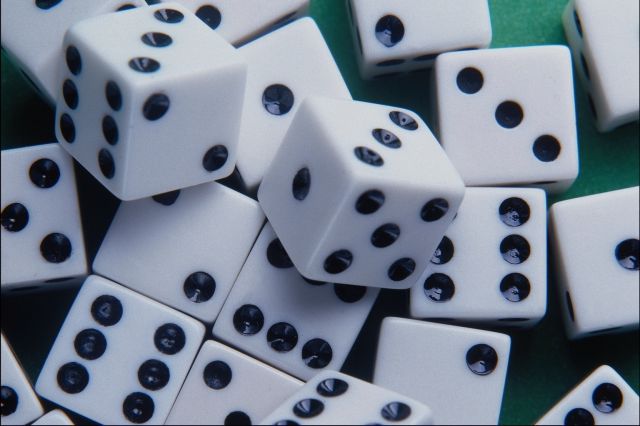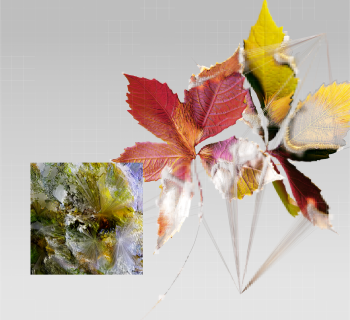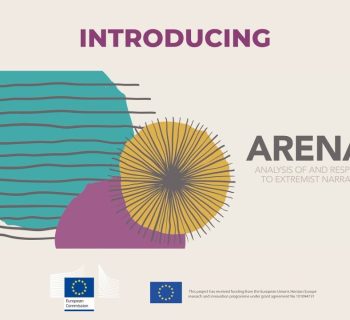 Last week I spoke at a meeting - Circular Economy Competences Making the Case for Lifelong Learning - at the European Parliament in Brussels. The meeting was hosted by MEP Silvia Costa and organised by ACR+ as part of the Erasmus+ CYCLE project, brought together key actors working on incorporating circular economy competences in education and lifelong learning. Pontydysgu are partners in the project and I introduced briefly what we are doing.
Last week I spoke at a meeting - Circular Economy Competences Making the Case for Lifelong Learning - at the European Parliament in Brussels. The meeting was hosted by MEP Silvia Costa and organised by ACR+ as part of the Erasmus+ CYCLE project, brought together key actors working on incorporating circular economy competences in education and lifelong learning. Pontydysgu are partners in the project and I introduced briefly what we are doing.
The press release below gives a good summary of the event. But the main lesson for me was that there are a lot of people doing practical things (and policy initiatives) around the circular economy. And there are a lot of people in the education sector (not least of all students) wanting to do things around the environment and climate change.
The problem is that for some reason there is not a lot of communication going on between the two communities. The Ellen MacArthur Foundation has produced some excellent and there have been a number of MOOCs, hosted mainly by Dutch and French organisations. But a lot of the learning materials available are focused on particular technical areas, rather than looking at the Circular Economy as a whole.
The CYCLE project is a start - aiming to develop an online competence centre for learning materials. But in reality the project is really too small when compared to what is needed.
I think the next step should be to attempt to develop a European Special Interest Group (SIG) on the circular economy and Education. Anyone interested?
Press Release
Brussels, Belgium. The event "Circular Economy Competences Making the Case for Lifelong Learning", hosted on 19 February at the European Parliament by MEP Silvia Costa and organised by ACR+ in the framework of the Erasmus+ CYCLE project, brought together key actors working on incorporating circular economy competences in education and lifelong learning.
The fully booked event was opened by MEP Silvia Costa, who stressed the importance of mainstreaming circular thinking in lifelong learning policies. The MEP also reported on the dialogue between the Parliament and the European Commission aimed at introducing recitals on climate change and sustainable development goals in the text of the next Erasmus+ 2021/2027 programme. Afterwards, Callum Blackburn from Zero Waste Scotland gave an introductory speech calling for international cooperation for circular economy education based on strategic partnerships that facilitate mutual learning.
The first thematic panel tackled the issue of circular thinking in education. Graham Atwell from Pontydysgu presented the e-learning platform that is currently being developed within the CYCLE project. The platform, which will be launched in May 2019, aims to collect training material on circular economy for adult educators. Sander Bos and Heleentje Swart from the Dutch Fryslan Region showed how governments and schools are already working together within the regional SPARK initiative to achieve a circular change in educational methods, practices and tools.
The second panel focused on how to upskill waste, repair and reuse industries. Fiona Craigintroduced the audience to the SWITCH Forum, a multi-partnership forum made up of organisations active across all the sub-sectors of resource management . The SWITCH Forum aims to support continuous improvement in education and training and in health and safety in this sector. Roberto Cerqueira from LIPOR presented the training programmes of the LIPOR Academy, which include circular economy as an area of knowledge.
The speakers of the last panel discussed the evolution of the labour market related to the circular economy and the skills that will be increasingly required for circular jobs. Lorenzo Barucca from Legambiente presented the key outcomes of a study carried out together with the University of Padova, about the main connections between innovative industries (Industry 4.0) and circular economy. Joke Dufourmont from Circle Economy presented the mapping of core and enabling circular jobs in the city of Amsterdam, reflecting on the technical and transversal competencies that underlie them.
The slides of the presentations made at the event are available on the ACR+ website.








